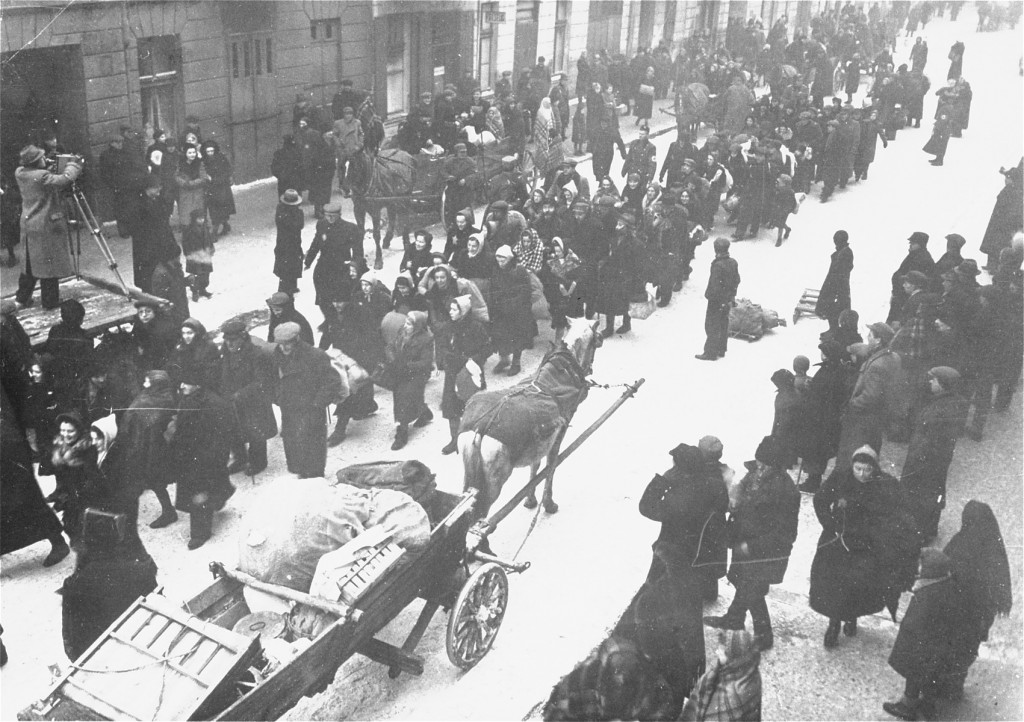
Irena Aronowicz
The Jewish children of Lodz suffered unfolding harsh realities after the German invasion of Poland. Some of the children, among them Irena Aronowicz, recorded their experiences in diaries. Their voices offer a view into the struggle of a community and its young to live in spite of the most difficult circumstances.
Diary Excerpt
“Everyone was going in the same direction, rushing toward the same goal, the dirtiest, ugliest quarter of the city, a place with no sewers and paved with cobblestones.... The ghetto.”
—Irena Aronowicz, age 15, spring 1940
Recreating the Diary
Irena Aronowicz was born in Lodz, Poland, in 1925. In 1940, she moved with her family into the Lodz ghetto. There she began to write a daily diary.
By 1942, Irena remained in the ghetto with just her sister. The two of them were deported to Auschwitz in August 1944. She took with her four full books containing her diary: they were lost forever. Irena was taken to a series of concentration camps including Birkenau, Freiberg, and finally Mauthausen.
In May 1945, American troops liberated Irena in Mauthasuen. Immediately following liberation, Irena set out to recreate her diaries from memory. In 1946, she moved to Palestine where she married Joseph Liebman in 1949. There, she raised a family and wrote novels.
Critical Thinking Questions
Why are diaries an important part of the historical record?
What makes children’s diaries distinct?
How are some of these accounts different from that of Anne Frank?
Investigate the experiences of children in the ghettos.

